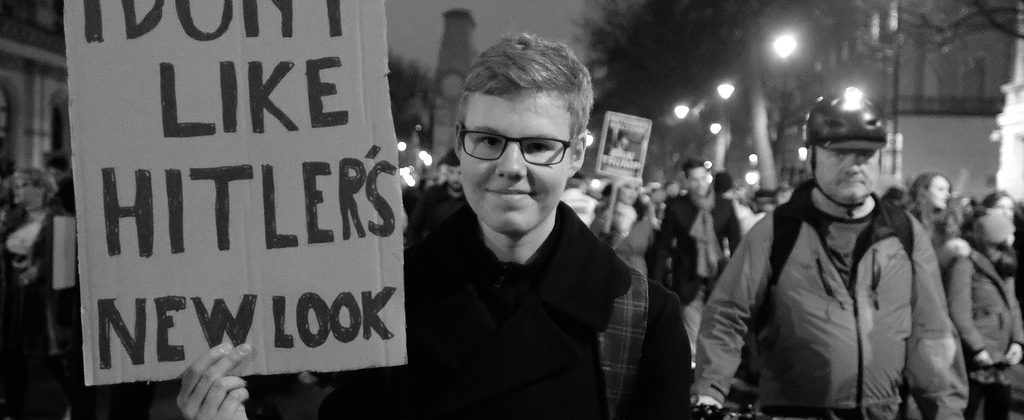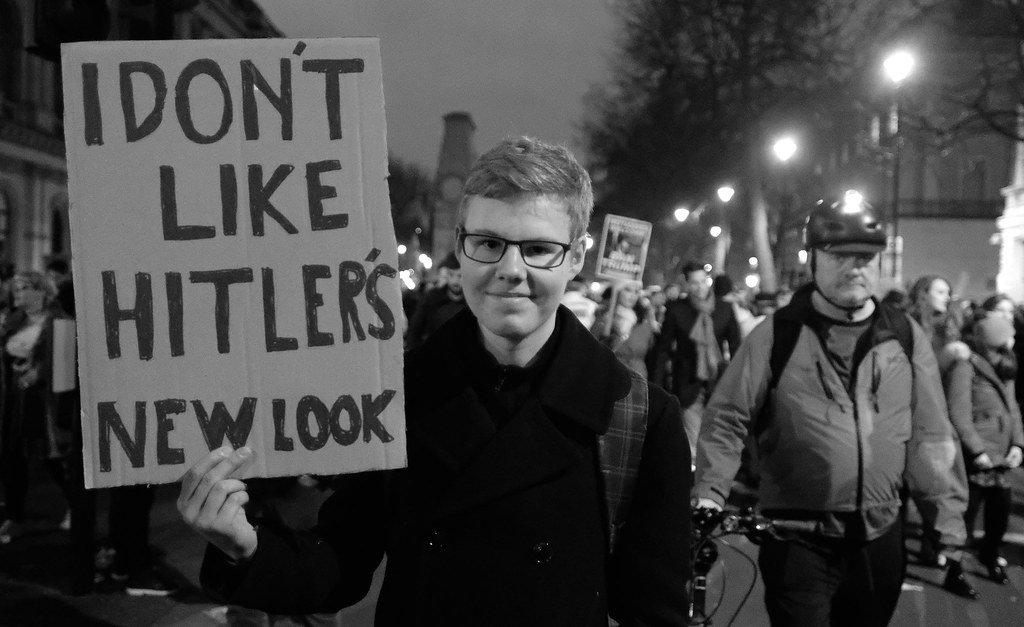

The originator of “Godwin’s Law” weighs in!
Here is Mike Godwin’s piece at The Washington Post:
My very minor status as an authority on Adolf Hitler comparisons stems from having coined “Godwin’s Law” about three decades ago. I originally framed this “law” as a pseudoscientific postulate: “As an online discussion grows longer, the probability of a comparison involving Nazis or Hitler approaches one.” (That is, its likelihood approaches 100 percent.)
I first offered this axiom in 1990 as an observation about the discussions that had expanded like algal blooms in the nascent ecologies of online newsgroups. But within a handful of years, the law had taken on a life of its own, leaping beyond the internet and reaching into our broader popular culture.
I felt vindicated because I had designed Godwin’s Law to be viral — to self-propagate among internet users. I had a theory that an individual could have a positive effect on culture by making a catchy joke about people’s worst tendencies toward rhetorical excess. The next step was to release the joke into the wild, then hope others found it clever or funny enough to be worth repeating.
Years after I’d let Godwin’s Law run free, I learned that an actual political philosopher, Leo Strauss, had made a somewhat similar remark a few years before I was born about debates trending toward Hitler. Strauss (whom I confess I still haven’t read) chose to classify Hitler comparisons as a special instance of a particular logical fallacy: reductio ad Hitlerum. He was right about that, but he also missed how funny such an inappropriate comparison might be. The sitcom writers of “Seinfeld” didn’t miss the goofiness — consider their “Soup Nazi.” Similarly, I loved Mel Brooks’s subversion of Hitler in “The Producers” when I discovered it as a kid in the 1960s.
But when people draw parallels between Donald Trump’s 2024 candidacy and Hitler’s progression from fringe figure to Great Dictator, we aren’t joking. Those of us who hope to preserve our democratic institutions need to underscore the resemblance before we enter the twilight of American democracy.
And that’s why Godwin’s Law isn’t violated — or confirmed — by the Biden reelection campaign’s criticism of Trump’s increasingly unsubtle messaging. We had the luxury of deriving humor from Hitler and Nazi comparisons when doing so was almost always hyperbole. It’s not a luxury we can afford anymore.
Trump has the backing of political actors who are laboring to give the would-be 47th president the kind of command-and-control government he wants. Their proposals for maximizing and consolidating the powers of the federal government under a single individual at the top — provided that the individual is appropriately “conservative” — don’t sound like an American democracy. Sorry, sticklers, they don’t even sound like an American republic, either. What they sound and look like is a framework to enable fascism. And we have to thank Trump for being admirably forthcoming that he plans to be a dictator — although, he says, only on “Day One.”
Godwin concludes:
The steady increase in Hitler comparisons during the Trump era is not a sign that my law has been repealed. Quite the opposite. Godwin’s Law is more like a law of thermodynamics than an act of Congress — so, not really repealable. And Trump’s express, self-conscious commitment to a franker form of hate-driven rhetoric probably counts as a special instance of the law: The longer a constitutional republic endures — with strong legal and constitutional limits on governmental power — the probability of a Hitler-like political actor pushing to diminish or erase those limits approaches 100 percent.
Will Trump succeed in being crowned “dictator for a day”? I hope not. But I choose to take Trump’s increasingly heedless transgressiveness — and, yes, I really do think he knows what he’s doing — as a positive development in one sense: More and more of us can see in his cynical rhetoric precisely the kind of dictator he aims to be.
Read the entire piece here.